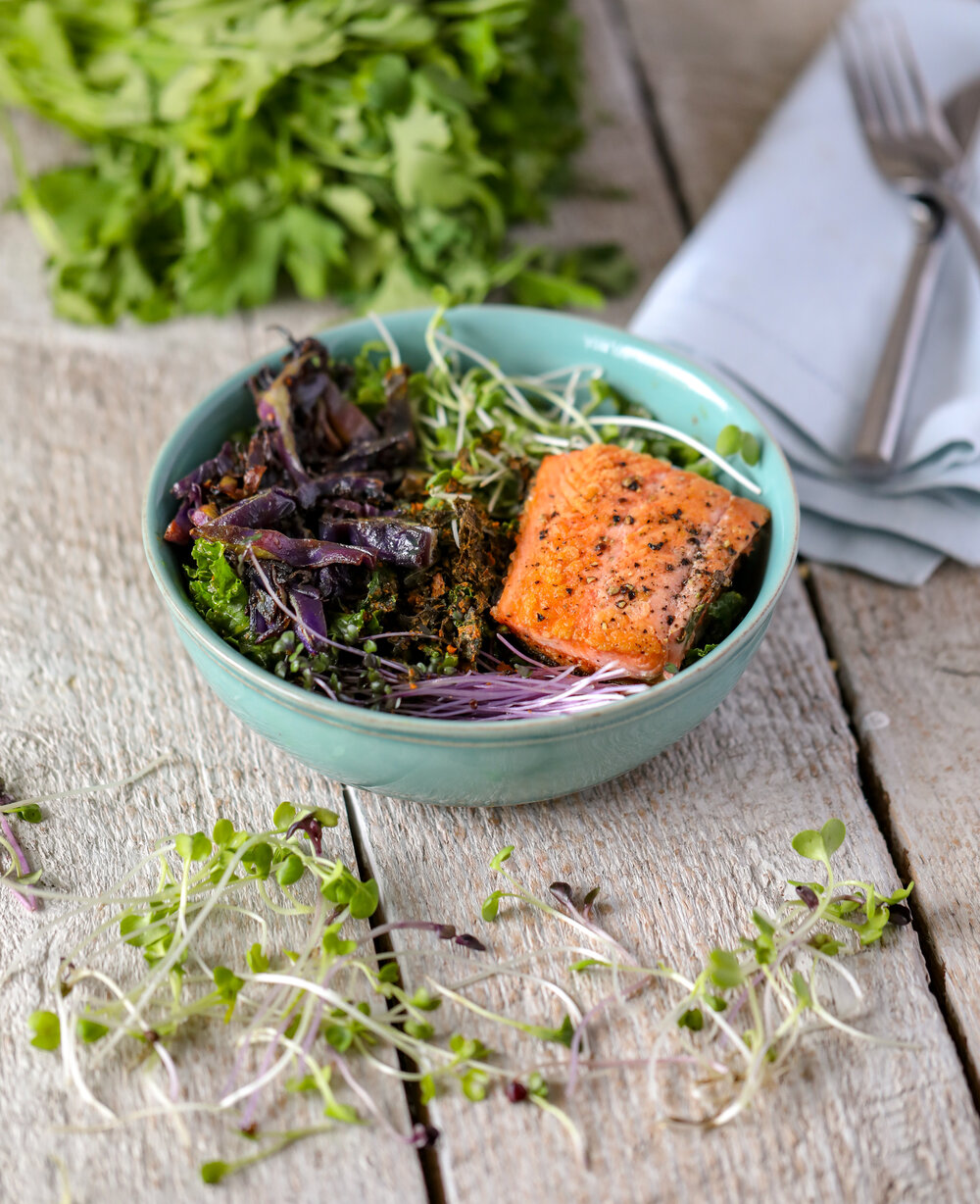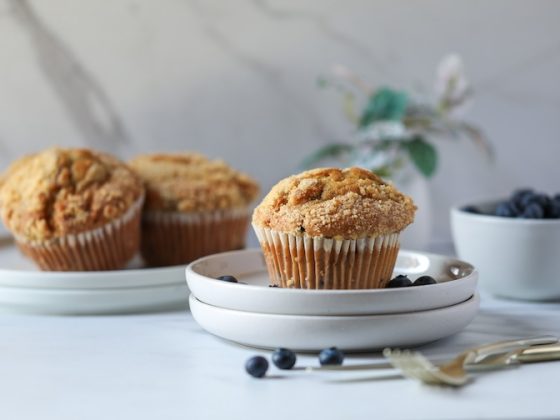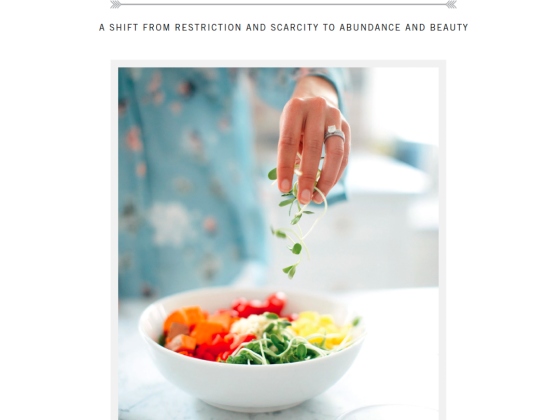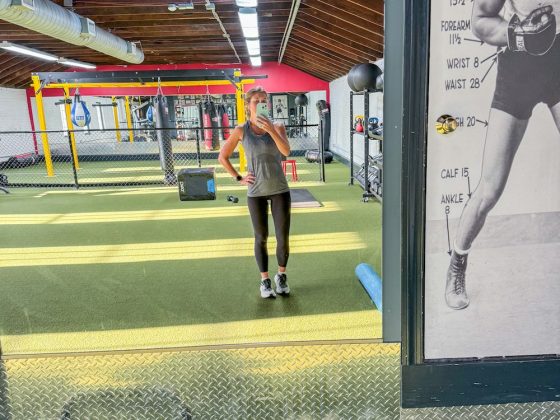If you struggle with anxiety, – you are not alone. Anxiety disorders are the most common type of mental illness in the United States; 40 million adults, or 18 percent of the adult population, experience anxiety symptoms at some time, according to the Anxiety and Depression Association of America ADAA. Treatment for anxiety usually includes a combination of therapy, such as cognitive-behavioral therapy, medication, and lifestyle changes, such as regular exercise and healthy eating.
Eating a well-balanced diet can increase feelings of wellbeing. Your anxiety symptoms aren’t going to disappear just by changing the way you eat – but watching what you eat and choosing healthy foods might reduce symptoms and help you cope better.
Foods to lower anxiety
“Foods rich in tryptophan can help by increasing serotonin levels,” explains Trista Best, MPH, RD, LD. Tryptophan is an essential amino acid used to produce and maintain the body’s proteins, muscles, enzymes, and neurotransmitters. “They also help form niacin, which is necessary for serotonin production,” according to Best. Low levels of serotonin may increase anxiety levels while adequate levels stabilize mood. Foods high in tryptophan include:
- Eggs
- Cheese
- Soy products
- Nuts
- Salmon
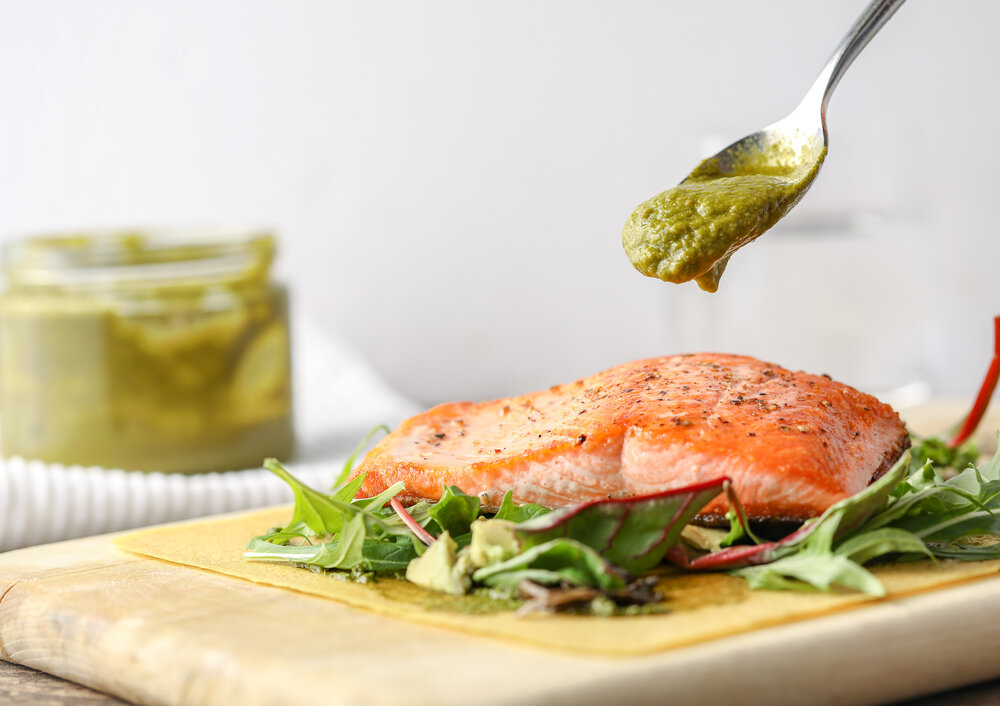
Your diet should also include complex carbohydrates, which metabolize slowly, thereby keeping blood sugars stable. Complex carbohydrates include:
- Whole grains such as oats, brown/wild rice and quinoa
- Starchy vegetables such as sweet potatoes, carrots, and squash
- Corn
- Legumes
Several studies have shown how food can impact anxiety levels:
- A research study that fed mice a diet low in magnesium showed increased anxiety levels. Diets rich in magnesium may lower anxiety; foods include leafy green vegetables, legumes, nuts, seeds, and whole grains
- Diets rich in zinc have been linked to lower levels of anxiety. Foods with high levels of zinc include oysters, liver, cashews, beef, and egg yolks.
- One study found that foods containing probiotics may reduce symptoms of social anxiety. These include pickles, sauerkraut, and kefir.
- Researchers found that omega-3 may help reduce anxiety symptoms. Foods rich in omega 3 include salmon, mackerel, tuna, sardines, chia seeds, walnuts, flaxseed oil, and soybean oil. You can also take supplements to increase your intake of omega 3.
- Antioxidants help reduce inflammation in the body and might help lower anxiety levels. Foods high in antioxidants include berries, walnuts, fruits, beans, dark chocolate, and kale.
Foods to avoid
“Certain foods can worsen or trigger anxiety,” says Trista Best. “Refined carbohydrates, like those found in sugar-laden foods such as pastries and convenience foods, can trigger anxiety in several ways. These foods cause a quick rise and fall in blood glucose, which leads to mood and hormonal imbalance. They also leave us feeling hungry more quickly, which can cause anxiety. Refined carbohydrates also contribute to inflammation and steady states of inflammation cause mood and hormonal changes.”
Refined carbohydrates include:
- Pastries and cookies
- Processed convenience foods
- Enriched bread
- Refined pasta
- Sugar-based cereals
Besides working to decrease anxiety symptoms, adopting healthier eating habits may increase your overall sense of wellbeing, give you more energy, and improve other health conditions.
Eating right is just one part of an overall plan to decrease anxiety. Exercise has been shown to reduce stress, according to the ADAA. Physical activity decreases stress, stabilizes mood, improves sleep, and improves self-esteem. Just five minutes a day of aerobic exercise helps relieve stress. An overall treatment plan might include cognitive behavioral therapy, medication when needed, meditation, physical activity, and a well-balanced diet. Together, these can elevate both your physical and mental health.

